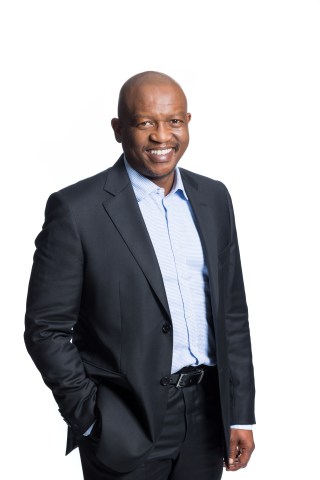SPONSORED CONTENT
What Are the Urgent ESG Priorities for Achieving Long-Term Sustainability Ambitions in South Africa?

From water scarcity to inequality, South Africa faces significant ESG challenges. Discover how OMIG is taking a proactive approach to stewardship and helping to build a better tomorrow.
First among these is the just transition to net-zero greenhouse gas emissions, where our focus is not only on carbon emission-reduction, but on ensuring that commitments are made by corporate South Africa to decarbonise in line with just transition principles.
OMIG became a signatory to the Net-Zero Asset Managers Initiative in February 2022 and is working, in partnership with its clients, to set decarbonisation goals to reach net-zero emissions across its entire assets under management by 2050.
We recently submitted our interim target of at least 24% of our assets under management being aligned to net-zero outcomes by 2025, which sets a tangible commitment to OMIG’s net zero commitments. The key focus under this heading is to drive sustainable change in the South African listed market.
However, the energy crisis is not the only environmental and social threat facing the country, although it is certainly exacerbating other critical ESG risks to SA’s sustainable development.
Many have singled out a looming water crisis as secondary to our electricity crisis. South Africa is a water scarce nation that receives insufficient and unreliable rainfall. Approximately one-in-five citizens in rural areas lack access to reliable water supply; one-in-three do not have basic sanitation services; and only two thirds of households benefit from safe, reliable access to water.
Water impacts every component of our economy and society and a company’s water usage can have significant environmental and socio-economic impacts. Our second key stewardship priority area therefore focuses on the increasing challenge of water scarcity, as we aim to ensure that the companies that we invest in develop strategies and policies to ensure responsible water usage.
Our last ESG priority in our current active stewardship strategy is inequality. South Africa, statistically speaking, is the most unequal country in the world, with a Gini coefficient of 63. There is a critical need for firms to focus on paying decent wages and creating opportunities for career progression in addition to new jobs.
We are focusing our engagement efforts on what strategies our investee companies have in place to ensure the responsible management of issues of diversity, equity and inclusion, including making commitments to measure and disclose data on pay gaps by gender and by race.
Eradicating poverty is among the most important of the United Nations 17 Sustainable Development Goals. As a group, Old Mutual has invested around ZAR150 billion into the developmental economy in South Africa and beyond, of which ZAR80 billion or so is invested into renewable energy; schools; housing and various impact funds as well as listed equity products with a specific ESG focus.
However, there are concerns over friction between the environmental and social outcomes of large sustainability focused projects.
We have to start having real conversations about what we are invested in and the actual impact on the ground, and we must ensure that while we are solving for climate risk, we are also solving for important concerns around exacerbating inequality in the process.
With the world now beset by what economists term a polycrisis, investors need to navigate environmental and social issues, while faced with geopolitical conflict and fragmentation and the compounding impact thereof on the recovery from the Covid pandemic, inflation and cost of living crisis, energy crises and polarisation within societies.
However, asset owners and managers who are struggling to meet their ESG commitments against a backdrop of a country (and world) beset by this polycrisis should take comfort in the fact that a just transition is an evolution rather than a revolution. We can participate in this evolution knowing that investing for impact does not erode investment returns.
We already know that there is abundant evidence of the financial value-add of incorporating ESG considerations and proactive stewardship programmes into investment decision making, and over the longer term, we do not foresee any sacrifice of returns from investing in assets that are managed according to a strong responsible investment thesis.
Ultimately, what is needed in the application of sustainable investment practices is industry wide introspection. All stakeholders should be asking themselves some important questions: How do we make a better tomorrow for our true principals? And how can we ensure progress in the critical evolution to an investment world where risk and return are considered on equal footing with impact. DM
By Tebogo Naledi, Managing Director, Old Mutual Investment Group


















